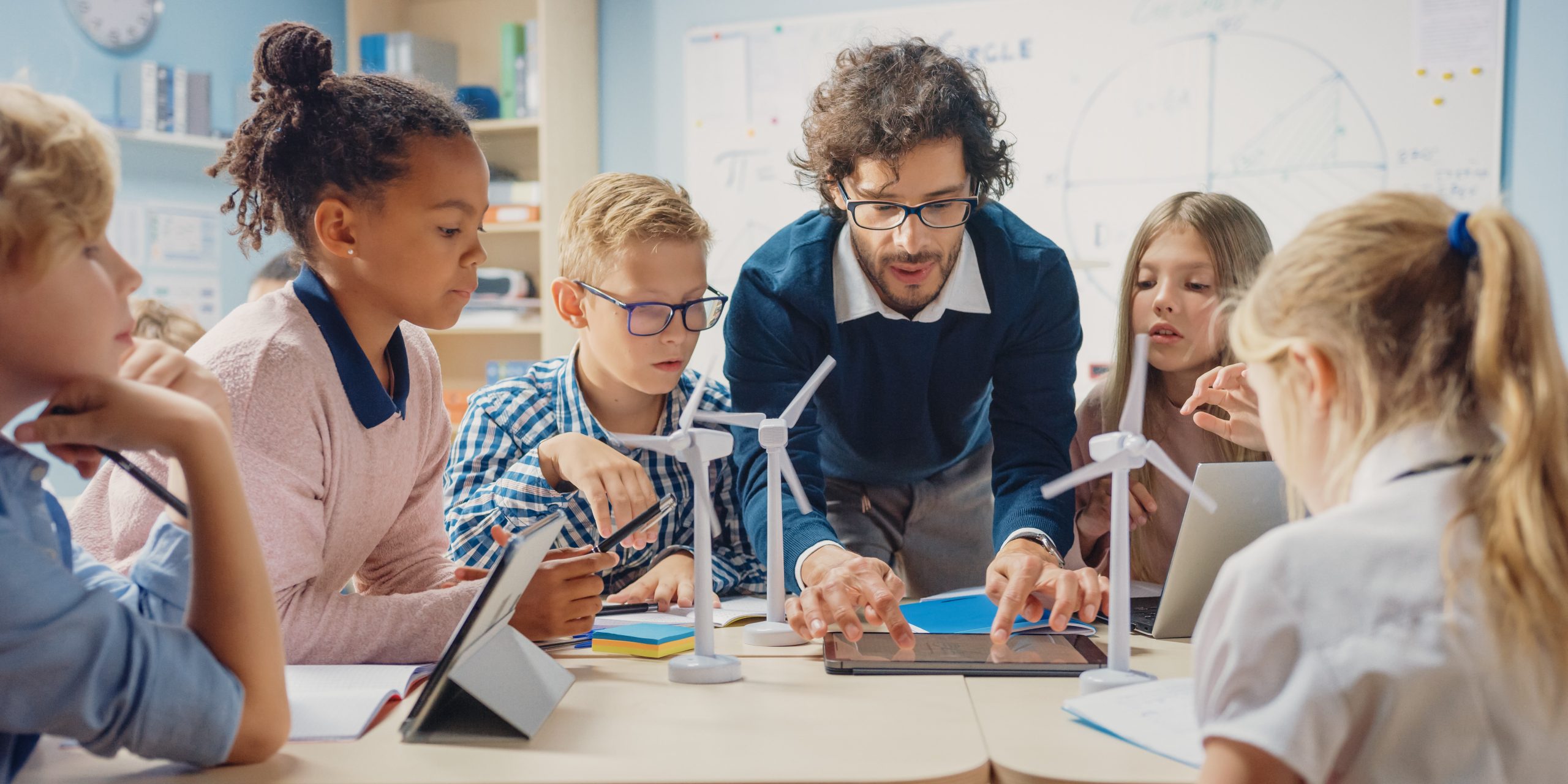Affordable Primary Science Tuition Singapore for All Learning Needs
Affordable Primary Science Tuition Singapore for All Learning Needs
Blog Article
Discovering the Different Training Strategies in Key Science Education And Learning Today
The landscape of key scientific research education is evolving, with different teaching approaches obtaining importance in contemporary classrooms. Inquiry-based understanding, hands-on experiments, and the assimilation of technology are redefining how instructors involve young minds. Additionally, collective methods and set apart instruction are being used to cater to the diverse needs of pupils, improving both engagement and understanding. As we check out these methodologies, inquiries occur concerning their effectiveness and the implications for future instructional practices. What might these changes in strategy mean for the following generation of learners?
Inquiry-Based Learning
Inquiry-Based Knowing (IBL) is an instructional approach that urges trainees to discover clinical concepts via doubting, examination, and hands-on experimentation. This method emphasizes the duty of pupils as active participants in their understanding, advertising crucial reasoning and analytic skills. By involving with real-world concerns, trainees become motivated and interested, which boosts their understanding of clinical concepts.
In IBL, educators work as facilitators, guiding trainees as they browse their questions rather than providing info straight. This student-centered approach allows for differentiation, accommodating various finding out designs and rates. Students develop abilities in formulating hypotheses, making experiments, and analyzing information, which are essential for scientific literacy.
Additionally, IBL fosters cooperation amongst trainees, motivating them to share ideas and findings. This collective questions advertises social abilities and a sense of community within the classroom. The process of inquiry motivates strength, as trainees learn to embrace failing as a stepping rock towards understanding.
Hands-On Experiments
Hands-on experiments are a crucial element of effective scientific research education and learning, matching the principles of inquiry-based understanding. These experiments enable students to engage directly with clinical ideas, fostering a much deeper understanding with experiential learning. By controling materials and observing end results, young students can grasp abstract concepts in tangible means.
Such tasks advertise critical reasoning and analytic abilities, as trainees hypothesize end results, conduct experiments, and analyze results. This process urges them to ask concerns, improve their understanding, and create a scientific mindset. In addition, hands-on experiments can be customized to varied understanding styles, making certain that all trainees have the opportunity to engage meaningfully with the material.
Furthermore, hands-on experiments frequently urge collaboration among peers, promoting synergy and communication skills. Functioning in teams makes it possible for trainees to share concepts, discuss searchings for, and gain from one another, which improves their overall academic experience.
Incorporating hands-on experiments into the key science educational program not just improves the finding out setting but additionally grows a long-lasting rate of interest in scientific research. By proactively participating in their education and learning, trainees are extra most likely to develop a passion for scientific query that prolongs beyond the classroom.

Modern Technology Integration
Integrating innovation right into key scientific research education and learning has actually become progressively necessary in promoting trainee engagement and enhancing learning outcomes. Making use of digital devices, such as interactive simulations, virtual labs, and instructional software, supplies pupils with chances to check out scientific principles in cutting-edge means. These sources help with a deeper understanding of complicated topics by allowing students to imagine and adjust variables that would certainly be impractical in a about his conventional class setup.
Furthermore, technology combination encourages customized discovering experiences. Students can proceed at their own rate, reviewing challenging principles with multimedia sources, which deal with different understanding styles. This versatility not just supports specific growth yet additionally grows a sense of freedom in learners.
Furthermore, modern technology functions as a bridge to real-world scientific research, linking pupils with present research study and specialist contributions. Accessibility to scientific journals and on-line databases expands students' point of views on clinical inquiry and cultivates crucial assuming skills.
Collaborative Learning
Joint understanding plays an important function in key science education and learning by cultivating synergy and interaction skills among trainees. This strategy urges learners to collaborate, share understanding, and involve in analytic, which boosts their understanding of scientific concepts. By taking part in group activities, trainees discover to verbalize their concepts, listen to diverse viewpoints, and negotiate solutions, every one of which are vital abilities in both scholastic and real-world contexts.

Research indicates that collective learning can cause increased inspiration and engagement in scientific research topics, as trainees locate pleasure in shared experiences (primary science tuition Singapore). Furthermore, this method prepares trainees for future collaborative ventures, outfitting them with the abilities required for reliable teamwork in college and specialist environments. Eventually, welcoming collaborative discovering in key i thought about this science education can significantly enhance the discovering experience and advertise a much deeper understanding of clinical inquiry
Set Apart Guideline

Differentiated instruction can materialize in numerous methods, such as varying the web content, procedures, or products of discovering. For example, teachers might utilize tiered tasks that give differing degrees of complexity, permitting students to operate at their particular readiness levels. Additionally, adaptable organizing methods can help with collaboration amongst students with various capabilities, cultivating peer discovering.
Evaluation plays a critical role in this strategy, as it notifies instruction and aids teachers recognize each pupil's distinct needs. Developmental assessments, such as observations and quizzes, can lead instructors in readjusting their techniques to improve discovering outcomes. primary science tuition Singapore. Eventually, by implementing set apart direction in primary science education and learning, teachers can cultivate a more reliable and equitable understanding environment, encouraging all pupils to reach their complete potential in recognizing scientific sensations
Final Thought
In recap, the varied teaching strategies in primary scientific research education, consisting of inquiry-based learning, hands-on experiments, innovation assimilation, collaborative understanding, and separated guideline, jointly add to a more efficient learning environment. These techniques advertise critical thinking, analytical abilities, and a much deeper understanding of clinical principles. By applying these techniques, teachers can produce encouraging and interesting published here class that address the varied needs of students, eventually promoting a lifelong rate of interest in science and improving scholastic success.
Inquiry-Based Knowing (IBL) is a pedagogical method that encourages students to explore clinical ideas with doubting, examination, and hands-on testing.Joint discovering plays an important duty in key science education by promoting teamwork and communication skills amongst trainees.Research study indicates that joint understanding can lead to enhanced inspiration and interaction in science subjects, as trainees find satisfaction in shared experiences.In fostering a comprehensive knowing environment, differentiated guideline arises as a key technique to fit the varied requirements and abilities of pupils in main scientific research education. Inevitably, by applying distinguished guideline in main scientific research education, instructors can cultivate an extra equitable and effective knowing setting, empowering all pupils to reach their full capacity in comprehending scientific sensations.
Report this page